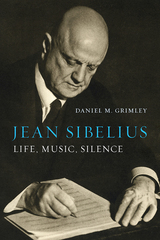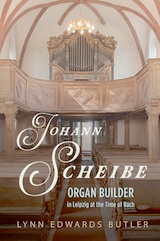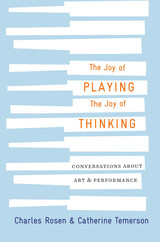4 start with J start with J

The need to examine early printed copies of music is being recognized as an important tool which can reveal as much as the study of early manuscripts. Composers themselves frequently took a major role in the preparation of the engraving.
Clavier-Ubung III—arguably the most carefully planned, intellectually conceived, and challenging volume of organ music ever published—is a particularly useful example of Bach’s printed works known chiefly from the print itself. The print is richer in information than any of the other original prints of Bach’s music, making it a distinctly suitable repertory for the author’s innovative treatment. Butler reveals fascinating new information on the genesis and history of the collection’s composition, finding, in part, that sections of the work were composed considerably earlier than previously was believed.

Few composers have enjoyed such critical acclaim—or longevity—as Jean Sibelius, who died in 1957 aged ninety-one. Always more than simply a Finnish national figure, an “apparition from the woods” as he ironically described himself, Sibelius’s life spanned turbulent and tumultuous events, and his work is central to the story of late-nineteenth- and early-twentieth-century music. This book situates Sibelius within a rich interdisciplinary environment, paying attention to his relationship with architecture, literature, politics, and the visual arts. Drawing on the latest developments in Sibelius research, it is intended as an accessible and rewarding introduction for the general reader, and it also offers a fresh and provocative interpretation for those more familiar with his music.

Drawing on extensive research and previously untapped archival materials, Lynn Edwards Butler explores Scheibe's professional relationships and the full range of his projects. These assignments included the three-manual organ for St. Paul’s Church, renovations of the organs in the important churches of St. Thomas and St. Nicholas, and the lone surviving example of Scheibe's craft, a small organ in the nearby village of Zschortau. Viewing Scheibe within the context of the era, Butler illuminates the music scene of Bach's time as she follows the life of a gifted craftsman and his essential work on an instrument that anchored religious musical practice and community.

Brilliant, practical, and humorous conversations with one of the twentieth-century’s greatest musicologists on art, culture, and the physical pain of playing a difficult passage until one attains its rewards.
Throughout his life, Charles Rosen combined formidable intelligence with immense skill as a concert pianist. He began studying at Juilliard at age seven and went on to inspire a generation of scholars to combine history, aesthetics, and score analysis in what became known as “new musicology.”
The Joy of Playing, the Joy of Thinking presents a master class for music lovers. In interviews originally conducted and published in French, Rosen’s friend Catherine Temerson asks carefully crafted questions to elicit his insights on the evolution of music—not to mention painting, theater, science, and modernism. Rosen touches on the usefulness of aesthetic reflection, the pleasure of overcoming stage fright, and the drama of conquering a technically difficult passage. He tells vivid stories about composers from Chopin and Wagner to Stravinsky and Elliott Carter. In Temerson’s questions and Rosen’s responses arise conundrums both practical and metaphysical. Is it possible to understand a work without analyzing it? Does music exist if it isn’t played?
Throughout, Rosen returns to the theme of sensuality, arguing that if one does not possess a physical craving to play an instrument, then one should choose another pursuit. Rosen takes readers to the heart of the musical matter. “Music is a way of instructing the soul, making it more sensitive,” he says, “but it is useful only insofar as it is pleasurable. This pleasure is manifest to anyone who experiences music as an inexorable need of body and mind.”
READERS
Browse our collection.
PUBLISHERS
See BiblioVault's publisher services.
STUDENT SERVICES
Files for college accessibility offices.
UChicago Accessibility Resources
home | accessibility | search | about | contact us
BiblioVault ® 2001 - 2024
The University of Chicago Press









